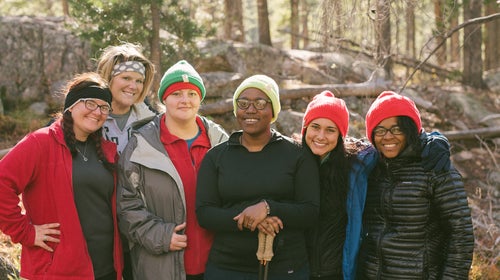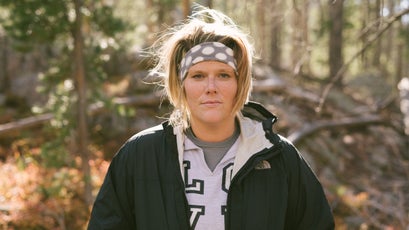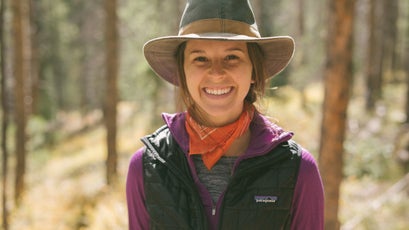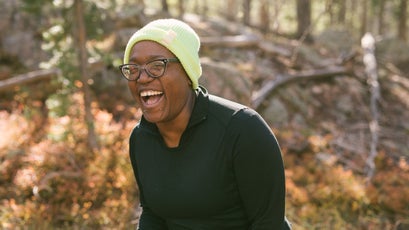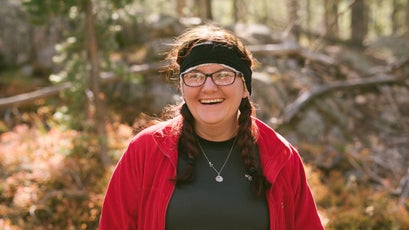The ║┌┴╧│╘╣╧═Ї Therapy Cure for Survivors
When you take former sex-trafficking victims into the wilderness for a few days of roughing it, know this: theyтАЩve seen worse. Florence Williams goes on a trip organized by Atlanta-based She Is Able and learns that one size of adventure therapy does not fit all.
New perk: Easily find new routes and hidden gems, upcoming running events, and more near you. Your weekly Local Running Newsletter has everything you need to lace up! .
Asta spent her first night in Colorado sleeping in an outfitterтАЩs warehouse, replaying in her head the bear growls sheтАЩd learned online. She wanted to be ready. Although sheтАЩd slept outside plenty of times, usually under a bridge, sheтАЩd never camped in the mountains, and she was, to say the least, apprehensive.
тАЬIтАЩm a little nervous, OK?тАЭ she says the next morning, practicing how to stuff her winter sleeping bag into the bottom of her loaner pack. SheтАЩs wearing leggings and a loose sweatshirt; her long hair hangs straight. тАЬI was homeless for four years in Atlanta, so this is a new adventure,тАЭ she says. тАЬI was afraid of the streets and the men, but this is different. ItтАЩs the mountains IтАЩm intimidated by. Bears, lions, mountain goats, cheetahsтАФI donтАЩt know, bugs, snakes.тАЭ
тАЬAre you really more afraid of bears than men?тАЭ I ask.
тАЬI know how to survive back there. This is unknown territory.тАЭ
AstaтАЩs southern accent is strong. Her body, she says, not so much. In addition to her fears about wildlife, the 34-year-old is worried about being out of shape, about not being able to carry a 40-pound pack, about holding up the group. And, oh yeah, about the cold October blast thatтАЩs expected to move in from the north, dropping nighttime temperatures into the low twenties.
For Asta and five other women whoтАЩve traveled here from Atlanta, this four-day backpacking trip in the Colorado wilderness is part reward and part recovery. (The participantsтАЩ names have been changed to protect their privacy.) They are nearing the end of various yearlong residential treatment programs for women who have lived in the grip of substance abuse and sex trafficking.
Today the group woke up in the Denver warehouse of , a company commissioned by the one-year-old Atlanta-based nonprofit , which connects women from various recovery centers with outfitters that can take them into nature. The women on this trip range in age from 20 to 38. They are not the image many of us have when we think of victims of sex trafficking. They are all U.S. citizens, for one thing. Four are white; two are African American. Most were born and raised in Georgia; a couple were brought there by their pimps.
To listen to the womenтАЩs tales, which they shared last night over plain burgers and plastic cups of water, is to hear a litany of broken promises and broken heartsтАФpimps who refused to bail them out of jail, husbands or boyfriends killed or imprisoned. They have all been neglected or abused by their parents, and in some cases watched as their own children were taken away by the state.
Between the forecast and the predators, this expedition is looking like yet another ordeal. Today the group will try rock climbing for the first time. Then weтАЩll hike into the , which borders the southern end of , to spend three nights in the backcountry. The women will be tested by the fickle weather of the Rockies in autumnтАФand so will the philosophy of wilderness therapy itself. How much can you recover from psychological scars if youтАЩre still profoundly traumatized? What if youтАЩre way more easily freaked out than most people who shoulder a pack? And what if you donтАЩt want to triumph over nature and the elements so much as get a decent nightтАЩs sleep, experience some calm, and maybe learn to love yourself again?
Fears can be outsize when youтАЩve spent much of your life afraid.
From the beginning, AstaтАЩs life wasnтАЩt so auspicious. Her mother was mentally ill, she says, and her father was a sexual predator. She was adopted by her grandparents as a young girl. The rest of her childhood was pretty typical: suburbs, school, church. She had a daughter when she was 20 and a son five years later, but his father ended up getting deported to Mexico. She became addicted to crack and alcohol, and, she says, тАЬgot the wrong attention from a man.тАЭ He pimped her out through online classified ads for dating and escort services.
Atlanta is an epicenter for sex trafficking, generally defined as a transaction that involves force, fraud, or coercion. According to an report, the cityтАЩs underground sex economy totaled $290 million in 2007, the most recent year for which figures are available. Many of those offered up on escort sites are minors. Local advocate Mary Frances Bowley, founder of the residential program Wellspring Living, calculated in 2007 that the cityтАЩs monthly population of underage trafficked girls hovered around 395. Many, she said, were expected to see eight to ten clients per night.
тАЬYour ad is put up,тАЭ Asta explains. тАЬAnd men can call and request you, and then they come to your hotel room and you have in-calls and out-calls.тАЭ For her, she says, using drugs meant that decision-making wasnтАЩt really an option. тАЬMy choices were made for me, but I allowed that door to open and then I couldnтАЩt close it.тАЭ She lost custody of her two childrenтАФher daughter to live with the girlтАЩs father and her son to adoption. After four years, she fled to a different set of pimps and became a street prostitute.
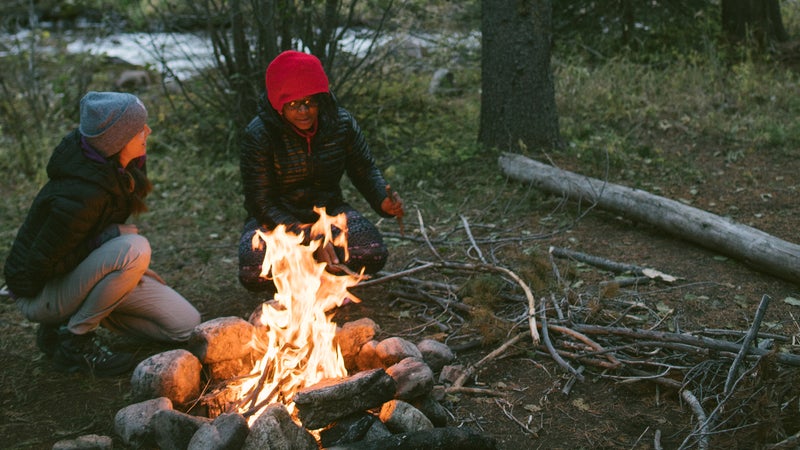
Eventually, Asta was rescued by a worker from a Christian ministry, who scooped her into an outreach van from under a bridge. She endured two weeks of near coma-┬нinducing detox before entering a residential addiction program. Three other women on this trip are from the same center, and two are from another Atlanta facility. Both places are affiliated with Christian evangelical groups.
This lends the trip a prayerful tone. Last night, Tamara, 31, talked about losing custody of her six-year-old son, who now lives with her grandparents. She started crying quietly.
тАЬCan I pray for you?тАЭ asked a woman named Kris. Tamara nodded. Kris offered her hand.
тАЬLord, please help heal every crevice of her broken heart. Help renew her mind during her absence from her son. Meet her where she is at, whether itтАЩs in a warehouse or on a mountaintop. I know, God, you have a purpose for her life.тАЭ Tamara sobbed harder, then Kris started to cry, and pretty soon the whole group, including the guides, were sniffling amid piles of sleeping bags and Nature Valley granola bars.
Asta climbing into that rescue van, Kris riding out withdrawal: that was bravery. These women donтАЩt need to scale a mountain in a blizzard to gain a sense of achievement. But coming to Colorado required an unusual leap of faith.
тАЬI donтАЩt welcome or receive. I push away,тАЭ said Asta. тАЬIтАЩm a runner.тАЭ She didnтАЩt mean the sport.
As we┬аpack up for the trip, game faces are back in place. The women pull on hiking boots, colorful knit hats, and fleece jackets, all of it donated, over their street clothes. тАЬGirl, you look good in yellow,тАЭ says one.
Next come the backpacks, hoisted into place amid much groaning. We pile ourselves and our packs into a roomy white van parked out back. тАЬThe van is new and needs a name!тАЭ says our guide, Chelsea Van Essen. тАЬWhat shall we call it?тАЭ
тАЬBetty White!тАЭ yells Tamara.
тАЬYes!тАЭ replies Chelsea.
Although Chelsea, a chipper, curly-haired 26-year-old, has worked with sexually abused women before, this is only her second trip as a leader for Expedition Backcountry ║┌┴╧│╘╣╧═Їs, and itтАЩs the first time the outfitter has worked with trafficked women.
Before loading up the van, Chelsea and fellow guide Hope Swearingen, a 23-year-old part-time mental-health coach, sit the ladies down in a circle for a briefing.
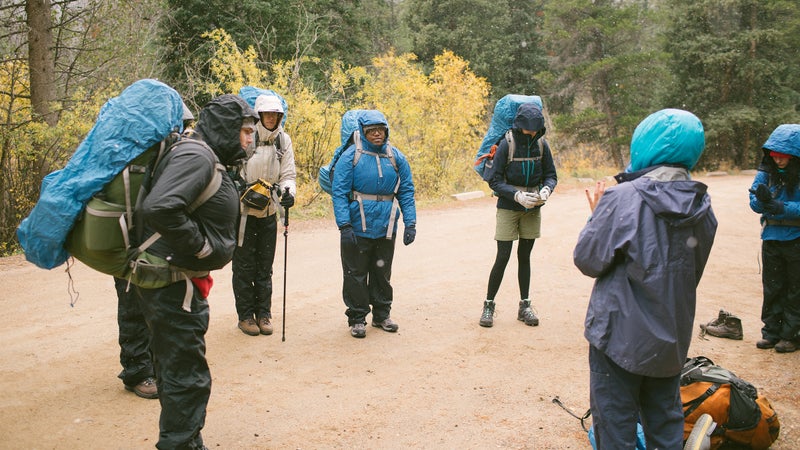
тАЬOne thing we want to focus on as a theme of the trip is safety. Every day we will let you know whatтАЩs coming,тАЭ says Chelsea, who has a social-work graduate degree focused on trauma from the University of Denver. тАЬIf I feel like I donтАЩt know whatтАЩs going on, I donтАЩt feel safe, right? I am going to ask you before I put my hand on your shoulder, and if you say no, thatтАЩs awesome! WeтАЩre going to respect that. We recognize that if you donтАЩt feel safe, then nothing else is going to happen, this power of healing in nature. None of that can happen if our brains are not fully safe.тАЭ
This fierce defense of emotional safety may seem completely sensible, but itтАЩs a radical departure from the way many adventure programs are run. Chelsea, along with other, primarily female outdoor educators, are drawing from a small but deep vein in feminist social science suggesting that the standard story line of тАЬgrow through toughness, conquer the peaks and find yourselfтАЭ just doesnтАЩt work for populations who have suffered long-term psychological trauma.
тАЬIt has to be understood from the get-go that this is not going to look like a quote-unquote normal trip,тАЭ Chelsea tells me. In some ways, it is less than normal: fewer miles, fewer vertical feet, fewer vistas. But before long, it will turn into more of a field test than anyone expected.
One thing the women are quite used to is group therapy. After months in rehab, they are so good at it that the trip leaders donтАЩt ┬нalways feel the need to step in. тАЬIтАЩve learned to let the women do most of the talking,тАЭ says She Is Able founder Elise Knicely.
In one year of operation, EliseтАФlargely on her ownтАФhas commissioned 14 excursions in several states, taking some 100 women on day trips and overnights. Last year, with a budget of just $80,000, she drew heavily on volunteers and partnerships with safe houses. At 27, she has proved successful raising funds, bringing in sponsors, and recruiting a well-connected board. As someone with no training in trauma care, though, Elise says itтАЩs easy for her to become investedтАФperhaps excessively soтАФin the womenтАЩs lives. тАЬIтАЩm a very empathetic person,тАЭ she says. тАЬSometimes I return from these trips emotionally hungover, truly, for weeks.тАЭ
At first glance, Elise seems the polar opposite of her charges: tall and wispy, regally poised, an Alpha Chi Omega with crisp outdoor gear and a confident stride.
тАЬI like your cap,тАЭ Kris says to her later. тАЬWhat does that mean, Patagonia?тАЭ
тАЬOh,тАЭ says Elise, smiling. тАЬItтАЩs an outdoor brand. I used to work in one of their stores.тАЭ She played a lot of sports growing up outside Atlanta and worked as a camp counselor during college at the University of Georgia. At 23, during a solo trip around the world, she landed in India, where she shadowed an organization fighting sex slavery in the slums of Mumbai. There she met young women forced to live in caged rooms. тАЬThose encounters changed my life,тАЭ Elise told me.
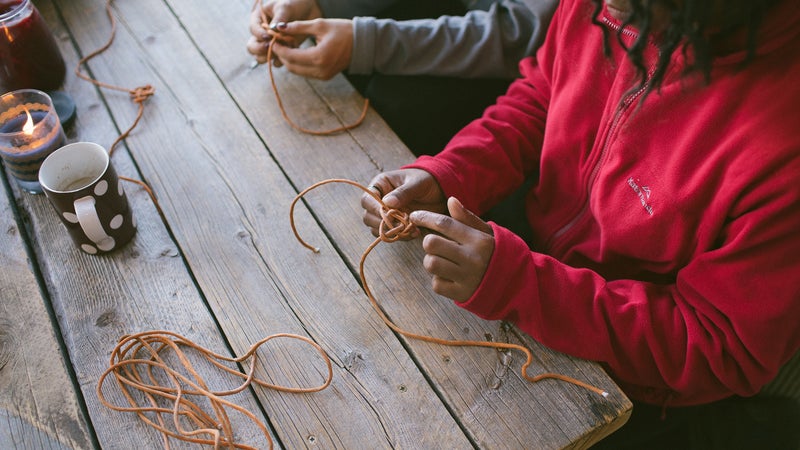
She went back to Atlanta and accepted a job doing corporate consulting. On weekends she took women from a sex-trafficking safe house hiking, then canoeing. The response was overwhelming.
тАЬOh crap, that got real fast,тАЭ she recalls of the decision to quit her corporate job. тАЬBut how the heck do I begin to turn this into something bigger and more constructive?тАЭ
Why did Elise think that a few hours or days in the woods could help course-correct a near lifetime of abuse, addiction, poverty, and exploitation? At first it was just intuition layered with sorority-girl optimism. SheтАЩs like Legally BlondeтАЩs Elle Woods combined with ░┬╛▒▒Є╗хтАЩs Cheryl Strayed. Then she started reading research showing that time in nature can help such women develop the tool kit they need to heal: self-regard, peace from the hypervigilance associated with trauma, and better, more connected relationships with friends and family.
Her doubts receded. She decided to found She Is Able in January 2017, offering three levels of outdoor adventureтАФfrom half-day trips to multi-day overnights, depending on how long the women had been in recovery.
тАЬA voice inside said, тАШE, this is what youтАЩre made to do.тАЩтАЙтАЭ
Betty White's first stop on our way to the trailhead is Clear Creek Canyon, which saws up into the Front Range from Golden. The morning is cold, and when we arrive the women huddle behind the van to pull on more layers and lace up their climbing shoes. At a crag called East Colfax, named after a boulevard in Denver that passes through an area known for street drugs and prostitution, we meet up with our climbing guide, Aleya Littleton. Diminutive, energetic, and infinitely patient, 32-year-old Aleya is an adventure therapist who specializes in sexual trauma. She has already fixed ropes on three short routes, and she helps the women into their harnesses.
тАЬIтАЩm just going to watch,тАЭ says Kris, gazing up at the rock.
тАЬMe too,тАЭ says Asta.
тАЬItтАЩs your choice,тАЭ says Aleya. But she has soon made participating irresistible. тАЬListen to your body,тАЭ she says. тАЬYouтАЩre going from a horizontal world to a vertical one, so use your muscles in a way you donтАЩt usually use them. Settle down into your legs, shift your weight. If I breathe and find my center, I can zoom out, open my focus. If IтАЩm anxious, that focus closes down.тАЭ
With Littleton belaying her, Tamara practically jumps onto the wall, giddy with the task, a natural.
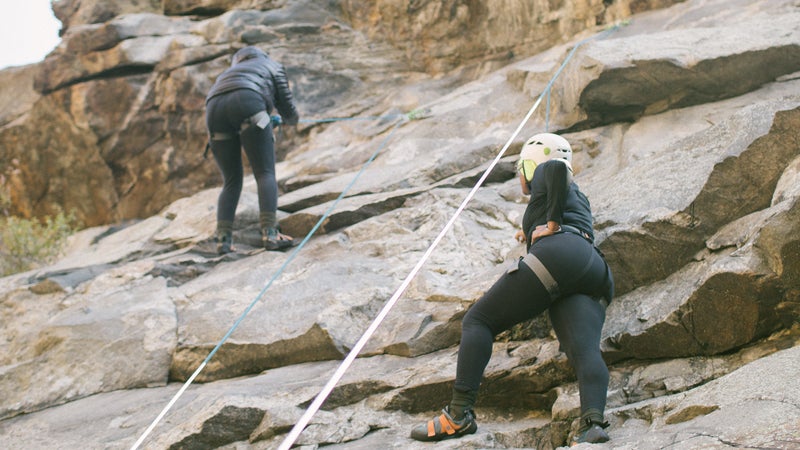
тАЬYou are crazy!тАЭ calls out Rochelle, 32. But then she too starts to climb on the next route, slowly but steadily.
A third woman, Kim, the youngest of the group at 20 and a recovering alcoholic, grins and starts up the last route. After a bit she looks down and calls out, тАЬIтАЩm rock climbing, yтАЩall!тАЭ She looks out over the rocky canyon, where the nearby creek rushes past ruddy willows and yellow aspens.
An hour later everyone has climbed, some twice, to much hugging and high-fiving.
The guide gathers the women into a semicircle. The sun has entered the canyon, and a breeze blows upstream. The women are blinking happily in the light, like they canтАЩt quite believe theyтАЩre here.
тАЬWhat was that like for you?тАЭ asks Aleya.
Rochelle speaks first. тАЬI noticed that once I started trusting, it got a lot better,тАЭ she says. тАЬWhat are the odds IтАЩm going to fall down the side of a mountain? Pretty low. When you said, тАШTake little steps,тАЩ that really ministered to me. Baby steps. That is a truth bomb. Baby steps.тАЭ
Asta is nodding. тАЬIтАЩm the only one who tells me that I canтАЩt do something. I tell myself that too much.тАЭ
тАЬYeah,тАЭ says Kim. тАЬI can help other people, but IтАЩm so bad at helping myself.тАЭ
тАЬI was reminded that IтАЩm going to be OK,тАЭ says Kris. Then she starts to cry.
The tough-it-out-to-toughen-up plotline is so familiar, we all assume itтАЩs true. Many wilderness-therapy courses conform to the narrative, a male-centric, quasi-militaristic hero story that says that what doesnтАЩt kill you, yada yada.
Climbing as metaphor may seem obvious. You have to trust the person holding your rope. You have to find your breath. You move one step at a time while also looking ahead. You pull yourself up and cheer each other on. But the banalities of these points donтАЩt make them less profound, and the benefitsтАФfrom both the mental and physical effortтАФreach unexpected places.
As Aleya explains it, healing trauma is complicated. ThatтАЩs because the brain wants to hold on to memories of danger. тАЬTheyтАЩre separate from linear, logical thought processes,тАЭ she says, тАЬso your nervous system acts like itтАЩs happening now or is about to.тАЭ Simply talking about traumatic memories doesnтАЩt fully work, because it engages only those neural pathways associated with logic and speech. Healing involves both separating fearful emotions from bad memories and bringing the nervous system back to the safer, quieter present. тАЬTrauma healing happens not only through talking, but also through integrative nonverbal therapies,тАЭ Aleya says, referring to both movement and mindful┬н-ness. These happen easily in adventure sports, as long as they feel relatively safe.
Still in their harnesses, the women have taken more risks than they expected. But trust is an unfamiliar feeling. They donтАЩt trust others, and they donтАЩt trust themselves. Before she enrolled in her current program, Asta had already experienced relapse once, returning to the streets and the bottle after a few weeks in a safe house. тАЬItтАЩs always a step away,тАЭ she says.
Kris has never gone this longтАФa yearтАФwithout a drink or methamphetamine since her life started unraveling 12 years ago. She turned to meth as a way to keep her weight down after her third son was born, and she got sucked into prostitution to pay for the drugs. Sexually abused from the age of 11, she never felt that her body was worth protecting. ┬нUltimately, she started dealing. She went to prison twice. The last time, her mom agreed to bail her out if she entered long-term rehab. That was just over a year ago.
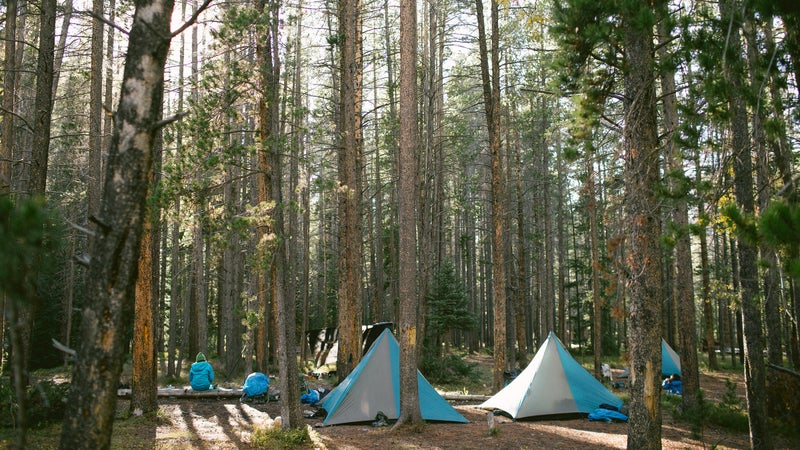
At one point, Kris asks the guides, тАЬWhy are you doing this to help people like us?тАЭ
тАЬWeтАЩve screwed every person over, burned every bridge,тАЭ adds a woman named Joy.
Hope, passing out the last of the granola bars, responds, тАЬI know the power the wilderness has. I canтАЩt keep this to myself.тАЭ
It's afternoon┬аby the time we arrive at the Monarch Lake trailheadтАФour gateway to Indian PeaksтАФand itтАЩs clear that these will be low-mileage days. The first challenge is obvious: the sky is dumping graupel. This, Chelsea explains to the wide-eyed Georgians, is a combination of snow and sleet.
тАЬWell, this is not what I was expecting,тАЭ says Kris. тАЬItтАЩs 90 degrees in Atlanta.тАЭ
We munch some apples, layer on raingear, and drape our packs with Smurf-blue covers that look like giant shower caps. The trail is narrow and smooth, a yellow brick road of fallen aspen leaves. Over the next few hours, we walk and stop and walk again. There are clothing adjustments, snacks, blister repairs. Asta and Rochelle need to rest at the top of gentle rises. We are near 8,500 feet. тАЬOh Lord, this pack is heavy!тАЭ groans Rochelle.
The fact that she is even feeling her body is progress, according to researchers like Julie Anne Laser-Maira, a trafficking expert and associate professor at the University of Denver. тАЬTheyтАЩve been through so much brutality,тАЭ she says. To survive those experiences, women often dissociate from their bodies.
Rochelle knows this well. тАЬI came to a place where I had to be OK with being raped,тАЭ she tells me. тАЬI had to be OK with it because it happened every single day for a really, really long time.тАЭ Rochelle says she was basically held captive as a sex slave for a year in Boston, then became a street prostitute and meth addict. She tells me this with bright eyes that, she says, were vacant not long ago.
Today she is scanning a marshy area off the trail that looks a little moosey to me. A few minutes later, sure enough, we see a mother and an adolescent moose about 100 feet away. The women fall into a huddle of exclamations and whispers.
тАЬThis is my first time ever seeing a moose in person!тАЭ says Tamara.
тАЬSame!тАЭ says Kim.
No one pulls out a cell phone, because they are not allowed to have them in rehabтАФone of many restrictions they agree to as part of their treatment. Life back there reverberates into the mountain in other ways. That first night, Kris wouldnтАЩt zip up her sleeping bag because she didnтАЩt want to feel trapped by it. The women go off to pee or collect water or firewood only in pairs, partly because they donтАЩt like being alone out here and partly because it isnтАЩt permitted in their treatment centers.
It takes us over two hours to hike the three miles to camp, following Buchanan Creek and crossing into the Indian Peaks Wilderness. White patches of snow glow like spotlights on the forest floor. The temperature keeps dropping, and itтАЩs getting dark. We set up tents, and eventually dinner is ready: thin bean soup. I figure this is the first course, but itтАЩs the whole deal. Chelsea and Hope look apologetic and whip up some Nutella on tortilla wedges for dessert. We heat water to fill bottles that we slip inside our sleeping bags, then wrap our bodies around the hot plastic and try to sleep.
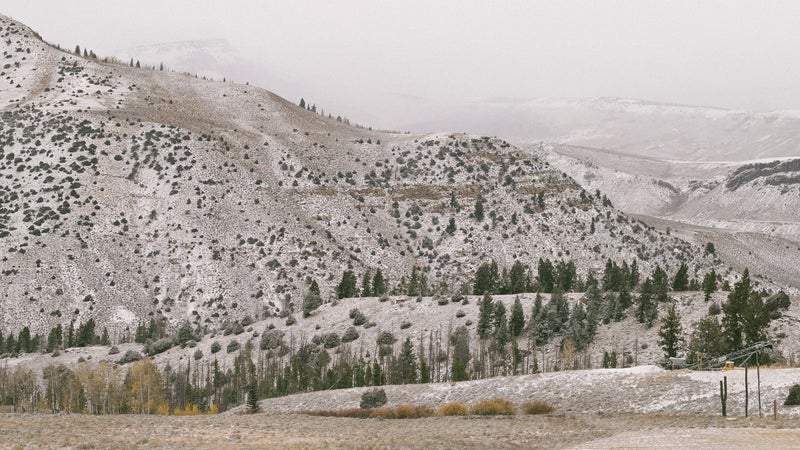
According to the usual outdoor-therapy script, weтАЩd all wake up feeling a little vulnerable, then gradually assume a mantle of fist-pumping, we-made-it-through-the-night badassery. The idea that pushing our limits builds character is as old as the hills. John Muir embraced it. So did Teddy Roosevelt. The tough-it-out-to-toughen-up plotline is so familiar, we all assume itтАЩs true. Many wilderness-therapy coursesтАФalong with Outward Bound, the National Outdoor Leadership School, the Eagle ScoutsтАФconform to the narrative, a male-centric, quasi-militaristic hero story that says that what doesnтАЩt kill you, yada yada.
But for trauma therapists like Chelsea and academics like Denise Mitten, who chairs the masterтАЩs program in adventure education at ArizonaтАЩs Prescott College, itтАЩs time to rethink the old tropes. They want less Daniel Defoe, more Katniss Everdeen. Not content to be the lone victor, youтАЩll recall, Katniss chose to hold PeetaтАЩs hand, and together they freed the slaves of Panem. Well, OK, I guess thatтАЩs kind of militaristic. But you get the idea.
In the U.S., there is a legacy of woods-for-hoods programs and spartan canyon-country marchathons for troubled teens and young adults. Some of these are more compassion based than others, but most share a central theme of overcoming challenges. According to Mitten, recovery may happen in those programs despite the hardships, not because of them. тАЬPeople always talk about risk taking and challenge, but I donтАЩt think those are the agents for change,тАЭ she says. тАЬThereтАЩs still a patriarchal creep in a lot of these groups of getting out of your comfort zone, but in general theyтАЩre geared toward people who are already comfortable. What about people who arenтАЩt comfortable?тАЭ
Mitten knows of just a handful of progressive groups specializing in wilderness expe┬нriences for women┬аwith trauma. They include Idaho-based , which runs trips for women veterans, and the Colorado-based , which runs LGBTQ and other programs. Aleya, our climbing guide on this trip, is planning to open an adventure-therapy center that will include courses for women suffering from post-traumatic stress disorder.
тАЬNature should put you in a comfort zone,тАЭ adds Mitten. тАЬPeople with PTSD, they donтАЩt even have a comfort zone.тАЭ
This morning┬аalong Buchanan Creek, ease and repose are not exactly on offer. Water bottles left outside our sleeping bags have frozen. The forecast is calling for snow tomorrow. Then thereтАЩs the matter of last nightтАЩs Dickensian rations. Kris, in her unzipped bag, nearly froze. Joy confided in me that she was terrified of the dark. (тАЬIt was pitch-black, and the trees started screeching. And I felt like somebody was coming.тАЭ)
тАЬThis just kind of sucks,тАЭ admits Elise at the morning fire. тАЬThis trip for yтАЩall is about healing, and if thatтАЩs not whatтАЩs being accomplished, then we as leaders need to reassess and make decisions, and we canтАЩt do that unless weтАЩre hearing from everyone.тАЭ
тАЬAll right,тАЭ Asta volunteers, тАЬIтАЩm a little overwhelmed. Sleeping on the streets is way different. I thought maybe I had a little bit of an understanding, but itтАЩs definitely different. This is real camping.тАЭ
тАЬI mean, this is joyous to be out here,тАЭ adds Kris. тАЬThe scenery is amazing. But last night was pretty miserable. IтАЩm like, What have I gotten myself into?тАЭ
So while Hope brews oatmeal, Chelsea jogs back to the trailhead to find some cell reception and see about amending the plan. Meanwhile, the women do yoga in down jackets, raid the peanut butter to bulk up their oatmeal, stoke the fire, and watch the pine needles sizzle. When Chelsea returns two hours later, she gathers up the group.
тАЬOK, new plan!тАЭ she says. Instead of continuing along to a second campsite, weтАЩll use this one as our base camp and go on a day hike. Tomorrow morning, before the worst of the storm hits, weтАЩll hike the three miles back out and head for a cushy retreat center for our last night. And weтАЩll buy more food. The women express relief and delight. No packs today! A waiting bed!
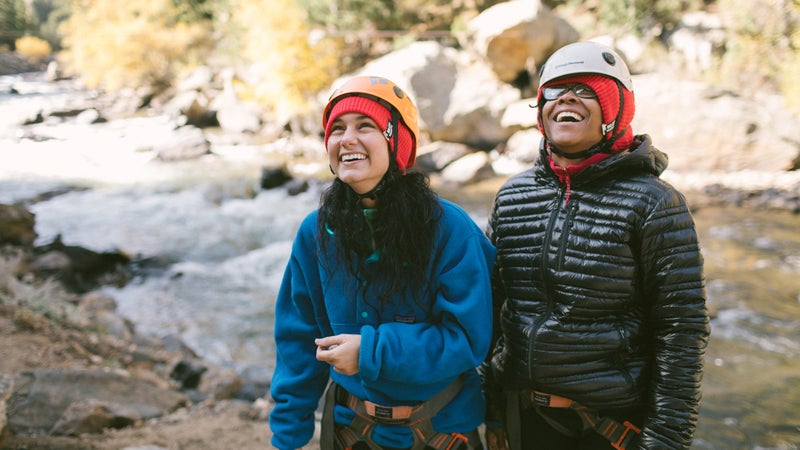
Later, Chelsea tells me why she felt the urgent need to pull the plug on a third, colder night out. It comes down to neurobiology. Everyone has a window of tolerance, she explains, in which they feel emotionally stable and can stretch and grow. тАЬThis is where you can stay connected to your frontal lobe, which is where social connections can happen, and abstract thought, creativity, self-concept, and meaning making.тАЭ People whoтАЩve experienced trauma can go into a state of hyperarousal, becoming anxious and on edge. Or they may experience hypo-arousal, which can look like listlessness and depression. Either way, emotions hijack the controls. тАЬTheir windows shrink quite a bit,тАЭ Chelsea says. тАЬTheir windows are really small.тАЭ
By midday, though, we all seem to have entered some sort of bliss bubble. The clouds have cleared, the temperature has warmed to the fifties, and the positive benefits of nature arrive on cue. We smell the vanilla bark of a ponderosa, walk across a log bridge over a fast-flowing creek, and picnic in bright sun.
Over bagels and canned salmon, I sit with Rochelle, who has an easy laugh that belies her life before treatment. I ask her how she feels today. She smiles and groans.
тАЬI am feeling a little bit exhausted,тАЭ she says. тАЬBut I am honestly doing a lot of self-reflection.тАЭ One thing sheтАЩs noticing is more physical sensation, not all of it pleasant. ItтАЩs a good reminder that she didnтАЩt always take care of her body, and now she wants to. тАЬItтАЩs like a loving type of awareness, you know?тАЭ
This is one of the main reasons that being active and outsideтАФin a full-sensory environmentтАФcan be so powerful. Although thereтАЩs not much research on how long these benefits last, healing from trauma is a long, slow process, says University of DenverтАЩs Laser-Maira. On a trip like this, mind and body finally start to come together again. The hope is that survivors use that base to keep themselves safer and healthier moving forward.
Although She Is Able doesnтАЩt formally follow up with participants, the idea is that theyтАЩll remain in touch and continue to support each other. For example, Elise and many of the other women will soon be attending TamaraтАЩs graduation from her treatment program, though thatтАЩs still hard to picture from their chilly streamside perch.
When we arrive back at the trailhead the next day, snow is falling. We board Betty White and head to 110-acre Toth Ranch, a Christian retreat center nestled into the rangy slopes of Hot Sulphur Springs. The main house is warm, with picture windows, deep plush sofas, and a hot tub. Kris looks around and starts crying, and Chelsea has to tell her itтАЩs OK, she is worthy of this place.
The afternoon is spent reveling in hot water, walking to a pond, and cooking up Thai noodles and Nutella cookies. Satiated and toasty, hair freshly washed, the women settle in for the evening debrief.
True to form, it isnтАЩt long before the tears and the prayers kick in. As the moon rises and the wind blows against the barren poplars, Elise talks about the many times she felt burned-out this year, desperately seeking funds, facing enormous self-doubt. She has agonized over whether to remain as executive director or move to the board level. (In several months, she will indeed hire a new director with experience treating victims of trauma.)
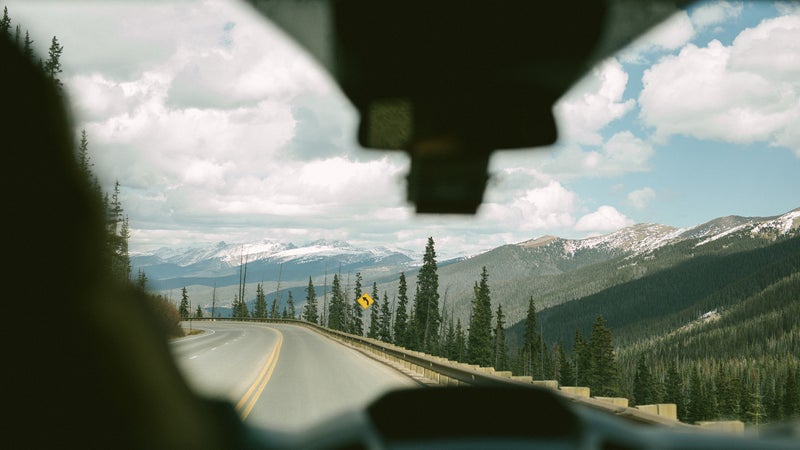
тАЬItтАЩs been really hard,тАЭ she says, sniffling, тАЬbut watching you guys, the genuine conversation and the realness thatтАЩs happened here, you canтАЩt beat it. And so you guys have made me want to keep going. This is why IтАЩm here. And how cool, you know?тАЭ
All the women tell Elise to keep going.
тАЬI know thereтАЩs six of us who have walked down a dark, dark path,тАЭ says Kris, who only 18 months ago crashed a vehicle into a gas station while being chased by a U.S. marshal. тАЬNone of us thought that weтАЩd be sitting here today. If you had asked us a couple years ago, the answer wouldтАЩve been no. I mean, this is something that I will never forget.тАЭ
тАЬI got a lot out of this,тАЭ starts Rochelle, тАЬeven the very uncomfortable parts of not being able to breathe and my back hurting or my muscles aching or not getting sleep or whatever, like the uncomfortable stuff.тАЭ She takes a deep breath. тАЬIt just sent messages to me like, Wow, my body is actually a responsibility.тАЭ Heads are nodding, slowly.
тАЬI didnтАЩt know that I needed any healing physically, or that there was deep, deep, deep wounding there.тАЭ Now she is crying, but she keeps going. тАЬAnd I had never grieved the loss that it had caused me. And I realized that my body has neverтАФyou know, like, I never really claimed it as mine.тАЭ
║┌┴╧│╘╣╧═Ї the big windows, the snow keeps falling on the mountains we just left, where, it seems, the women also deposited a few shards of themselves, bits that needed to be abandoned. Rochelle looks out over the range. тАЬI took back my body. I realized it could be mine.тАЭ┬а
Contributing editor Florence Williams () is the author of . She wrote about Girl Scouts in May 2017. Mikaela Hamilton is an ║┌┴╧│╘╣╧═Ї contributing photographer.

